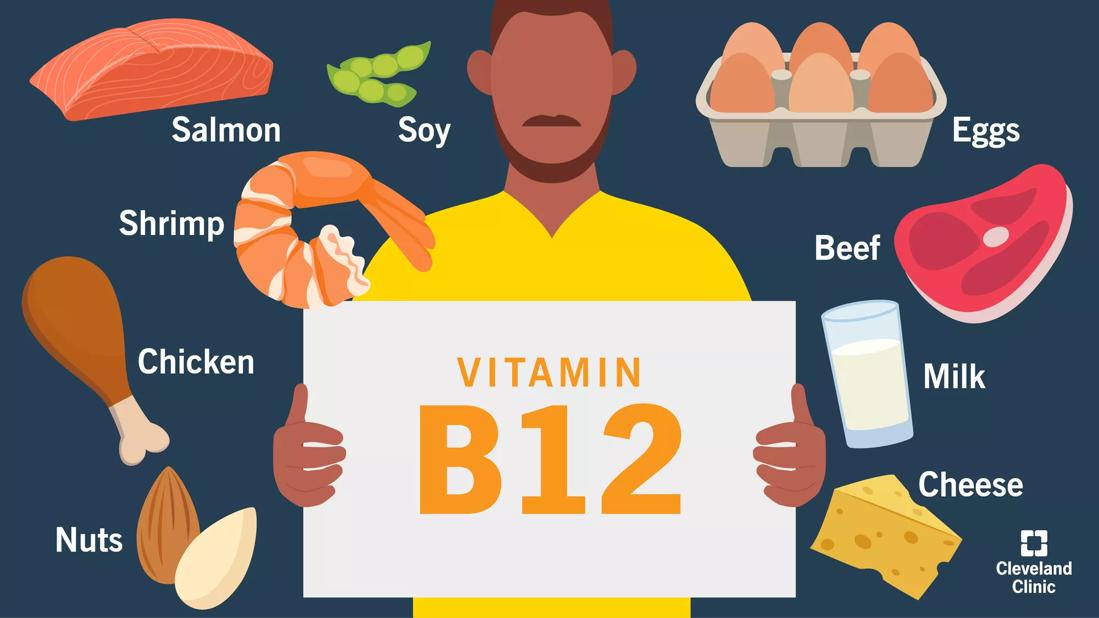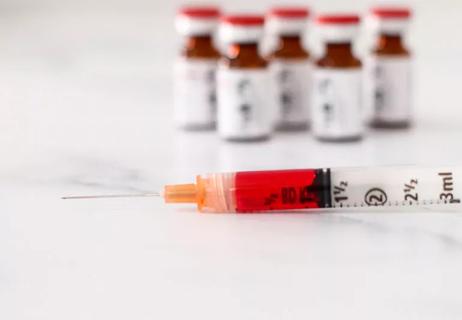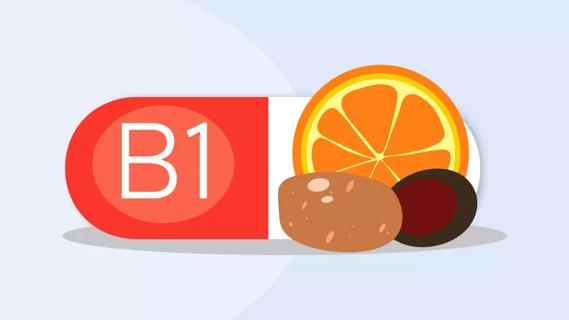From boosting energy to helping with brain function, this vitamin is found in many foods

If you want to increase your intake of vitamin B12, put down that bottle of vitamins! Unless you have a diagnosed vitamin or mineral deficiency, nutritional needs are best met with food, not supplements.
Advertisement
Cleveland Clinic is a non-profit academic medical center. Advertising on our site helps support our mission. We do not endorse non-Cleveland Clinic products or services. Policy
Registered dietitian Anna Taylor, RD, LD, shares some of the best ways to add more vitamin B12 foods into your diet.
Also known as cobalamin, vitamin B12 is a necessary vitamin that aids in many essential body functions. It’s a water-soluble vitamin that’s absorbed in your stomach and then makes its way to your blood and cells.
While this vitamin isn’t something that your body naturally produces, there are ways to fill the gaps. As B12 is naturally found in many animal products, it’s simple to incorporate this essential vitamin into your diet.
Vitamin B12 plays many important roles in your body, with many benefits, including:
One main benefit that vitamin B12 provides is the production of red blood cells. Why is this important? Red blood cells deliver oxygen throughout your body, which turns into the energy needed to keep your body functioning in a healthy way.
When your body isn’t getting enough vitamin B12, red blood cells become enlarged — making it harder for them to move in your bloodstream. This can ultimately cause a type of anemia.
Vitamin B12 also helps your body make DNA — the building blocks for all of your body’s cells.
Especially as we age, vitamin B12 is vital for brain health. Some studies suggest that the vitamin may even help prevent cognitive decline. If you become vitamin B12 deficient, it can affect your memory and cognition.
Advertisement
If your vitamin B12 level is normal, there isn’t much research that suggests taking vitamin B12 will boost your energy. But if you’re currently vitamin B12 deficient, chances are, you’re struggling with weakness and fatigue. Making a point to eat more vitamin B12-rich foods is a great way to boost your energy if your system is lacking.
Some research also suggests that if you become vitamin B12 deficient, it can increase your risk of age-related macular degeneration (AMD), which is a gradual type of vision loss common in people over 50.
As vitamin B12 has such an essential role in supporting healthy red blood cells, including more of it into your diet may help reduce your risk.
Vitamin B12 is found in many food sources. But if you don’t produce enough of a protein called “intrinsic factor” that helps your body absorb vitamin B12, or if you don’t eat enough vitamin B12 foods, you may develop a deficiency.
“If left untreated, vitamin B12 deficiency can lead to anemia, nerve damage and more,” warns Taylor.
You may also have a higher risk of developing a vitamin B12 deficiency if:
If you’re experiencing any of the following symptoms, you may have a vitamin B12 deficiency. Consult a healthcare provider if:
You may not realize it, but vitamin B12 can be found in some of your favorite foods. “There’s no reason to completely change your diet in order to get a healthy dose of vitamin B12,” says Taylor.
Here are some foods that are a good source of vitamin B12:
Dairy and (some) nondairy brands are fortified with vitamin B12. If you’re allergic or intolerant to dairy and drink milk alternatives like almond, soy, oat or cashew milk, be sure to check the nutrition label for vitamin B12.
If you’re vegan or vegetarian, some cereals are a great source of vitamin B12. “Just be sure to choose a cereal that is low in added sugar and high in fiber and whole grains,” notes Taylor.
“Egg yolks contain more vitamin B12 than egg whites,” says Taylor. “It’s important to eat the whole egg if you are trying to increase your vitamin B12 intake. But if you have high cholesterol, consult with your doctor or dietitian first.”
Advertisement
Fun fact: Eating full-fat plain yogurt has been shown to improve vitamin B12 deficiency because the vitamin is more easily absorbed in dairy products. If you’re looking for fewer calories, fat-free Greek yogurt is a healthier option that also provides a solid amount of vitamin B12 (it even has more vitamin B12 than whole-fat yogurt).
Many people who try to eat healthier include salmon in their diets. It has a ton of omega-3 fatty acids and protein, as well as B vitamins. Just half of a cooked salmon fillet (6 ounces) contains more than 200% of the daily value of vitamin B12.
Whether you’re a fan of canned or cooked tuna, both provide many essential nutrients, including vitamin B12. If canned is your preference, opt for light tuna in water. If you prefer cooking your own tuna fillet, make note that the muscles right below the skin (the dark muscles) contain a high concentration of vitamin B12.
Eating 3 ounces of red meat one to two times per week is recommended. “As a rule of thumb, choose leaner meats, which contain higher vitamin levels,” says Taylor. “And always try to grill meat instead of frying it.”
Organ meats are incredibly rich in B12, but they also contain a large amount of cholesterol. For this reason, Taylor advises people who include organ meat in their diet to do so in moderation.
Advertisement
A lean source of protein, iron and antioxidants, a 3.5-ounce serving of baby clams provides greater than 4,000% of vitamin B12’s recommended daily value.
The recommended vitamin B12 intake (in micrograms, or mcg) is as follows:
| Age | Recommended Daily Value |
|---|---|
| Birth to 6 months* | 0.4 mcg |
| 7-12 months* | 0.5 mcg |
| 1-3 years | 0.9 mcg |
| 4-8 years | 1.2 mcg |
| 9-13 years | 1.8 mcg |
| 14+ years | 2.4 mcg |
| 14+ years and pregnant | 2.6 mcg |
| 14+ years and lactating | 2.8 mcg |
| Age | |
| Birth to 6 months* | |
| Recommended Daily Value | |
| 0.4 mcg | |
| 7-12 months* | |
| Recommended Daily Value | |
| 0.5 mcg | |
| 1-3 years | |
| Recommended Daily Value | |
| 0.9 mcg | |
| 4-8 years | |
| Recommended Daily Value | |
| 1.2 mcg | |
| 9-13 years | |
| Recommended Daily Value | |
| 1.8 mcg | |
| 14+ years | |
| Recommended Daily Value | |
| 2.4 mcg | |
| 14+ years and pregnant | |
| Recommended Daily Value | |
| 2.6 mcg | |
| 14+ years and lactating | |
| Recommended Daily Value | |
| 2.8 mcg |
*Adequate Intake
Source: National Institutes of Health Office of Dietary Supplements
“Unless you have a B12 deficiency or have identified a risk factor for deficiency (like following a vegan diet or having a malabsorption issue), there’s no need to take a vitamin B12 supplement. Instead, include food sources of vitamin B12 in your diet,” says Taylor.
If you’re taking vitamin B12 supplements in addition to the vitamin-rich foods you’re consuming, you could experience diarrhea, nausea, vomiting and headache. “Symptoms of excessive intake are rare since your body will excrete any extra through your urine,” adds Taylor.
The best thing to do? Consult with a healthcare provider about a possible vitamin B12 deficiency. A simple blood panel will confirm your vitamin B12 levels and then your provider can develop a plan of action from there.
Advertisement
Learn more about our editorial process.
Advertisement

Though it was once used as a cholesterol-lowering medication, niacin is no longer a recommended treatment

Some protein-containing foods are known to be good sources of biotin — but there are also likely other foods that just haven’t been studied yet

This essential nutrient helps convert food into energy, but don’t expect wonders for your nails and hair

This important B vitamin has benefits for your heart, brain and skin

Taking supplements with biotin can cause inaccurate lab test results

If you have low B12 or a true deficiency, these shots can work wonders

Pantothenol is a powerful moisturizer and can help repair damaged skin and hair

Getting enough thiamine in your diet can protect your heart, brain and nervous system

Wearing a scarf, adjusting your outdoor activities and following your asthma treatment plan can help limit breathing problems

Your diet in the weeks, days and hours ahead of your race can power you to the finish line

When someone guilt trips you, they’re using emotionally manipulative behavior to try to get you to act a certain way